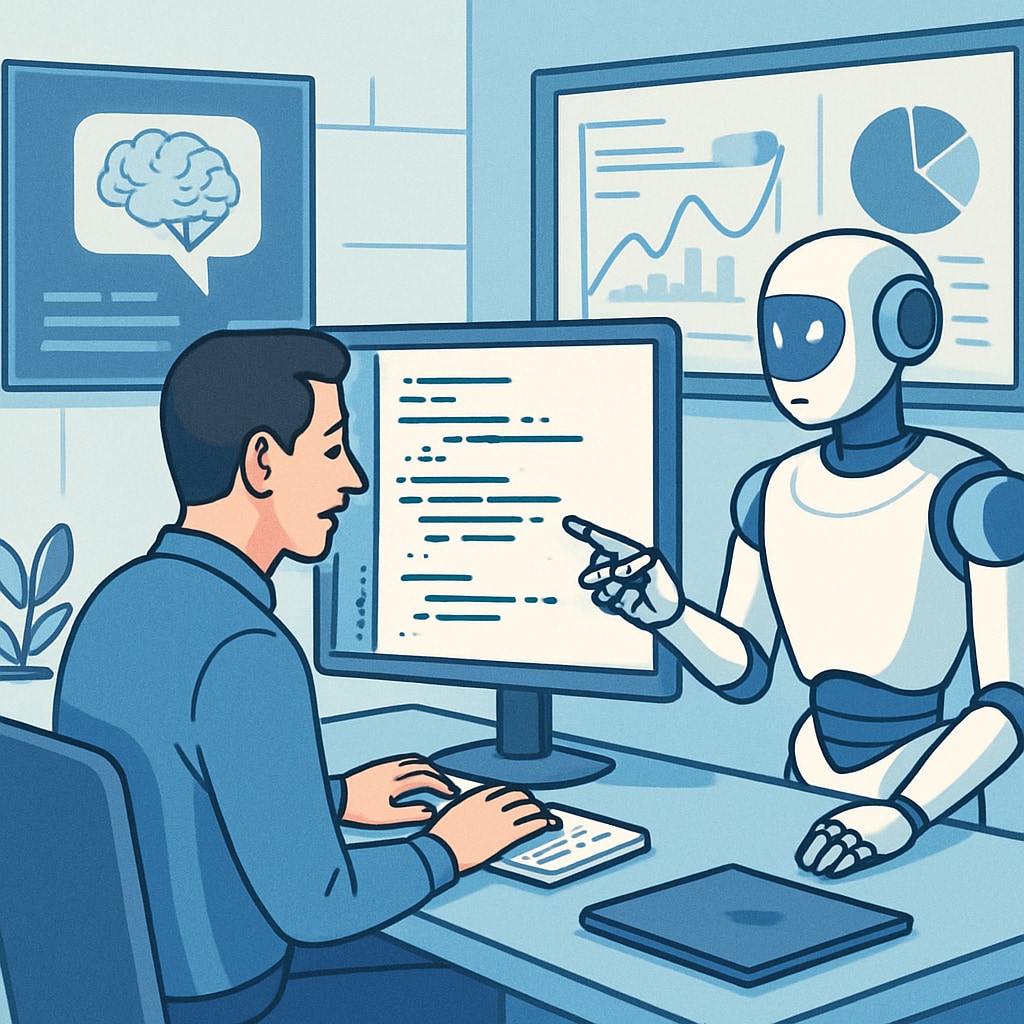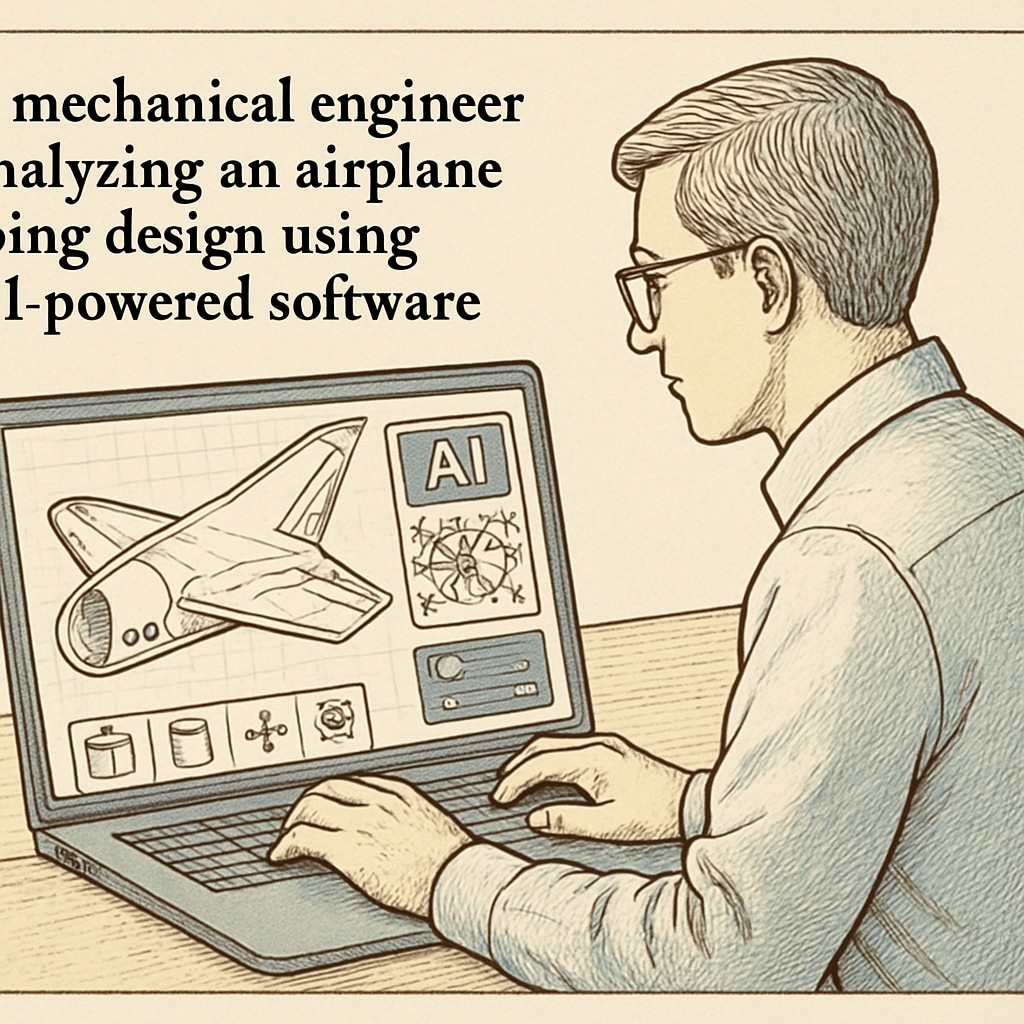In today’s rapidly evolving world, artificial intelligence (AI) is reshaping industries and professions. For middle school students considering their future, career choices such as becoming a programmer or engineer can feel both exciting and overwhelming. With the rise of AI, these professions are transforming, creating opportunities but also sparking uncertainty about long-term career security. This article will explore the effects of AI on programming and engineering, highlight their unique characteristics, and offer practical advice to help students make informed career decisions in this era of technological change.
How AI is Influencing Programming and Engineering
The impact of artificial intelligence on programming and engineering is profound. In programming, AI tools like GitHub Copilot and ChatGPT have started automating repetitive coding tasks. These tools can write basic code, debug errors, and even suggest more efficient algorithms. As a result, some students may worry that AI will replace programmers altogether. However, the reality is more nuanced. While AI can handle simple tasks, it still relies on humans to design complex systems, make decisions, and innovate.
Engineering, on the other hand, spans a wide range of disciplines, from civil to mechanical, electrical, and beyond. In many of these fields, AI is being used to optimize processes, improve safety, and create smarter designs. For example, AI-powered software helps civil engineers simulate and analyze infrastructure projects, while in mechanical engineering, AI enhances predictive maintenance systems for machinery. However, like programming, engineers are still needed to interpret AI-generated data and oversee projects.

Key Differences Between Programming and Engineering Careers
While programming and engineering often overlap in the tech industry, they have distinct skill sets and career paths. Programming requires strong logical thinking and problem-solving skills, focusing on writing and optimizing code. Programmers often work in software development, web development, or data science, depending on their specialization.
Engineering, by contrast, is more diverse. Fields like mechanical, civil, and aerospace engineering involve designing physical systems, while computer engineering bridges hardware and software. Engineers must combine creativity with technical expertise, often working in teams to solve real-world problems. This breadth makes engineering an attractive choice for students who enjoy applying science and math in practical ways.
It’s important to note that both professions are evolving due to AI. Students interested in programming should focus on learning advanced concepts like machine learning and cybersecurity, while aspiring engineers should consider how AI tools can enhance their chosen specialty.

Practical Tips for Navigating Career Choices in the AI Era
Choosing between programming and engineering—or any career—requires careful planning. Here are some practical steps middle school students can take to prepare for their futures:
- Explore your interests: Try coding tutorials, build simple projects, or join STEM clubs to discover what you enjoy most. Hands-on experience can clarify whether programming or engineering aligns with your passions.
- Learn AI basics: Understanding how AI works and its applications in different fields will help you see how it could complement your career choice. Free online resources like Coursera AI courses are a great place to start.
- Develop transferable skills: Critical thinking, communication, and teamwork are valuable in any profession. These skills will help you adapt as industries evolve.
- Seek mentorship: Talk to professionals in programming or engineering. They can provide insights into their daily work and how they see AI affecting their field.
- Stay flexible: The job market is changing rapidly. Be open to learning new technologies and pivoting your career path as needed.
In addition, parents and educators can support students by encouraging exploration and providing resources to nurture their interests. Career fairs, workshops, and after-school programs can expose students to various fields and help them make informed decisions.
Looking Ahead: The Future of Programmers and Engineers
The future of programming and engineering is undeniably tied to AI, but this should not deter students from pursuing these careers. Instead, it highlights the importance of staying adaptable and continually learning. Programmers who master AI-related skills, such as developing machine learning algorithms or building secure systems, will remain in high demand. Similarly, engineers who embrace AI tools to improve designs, efficiency, and sustainability will lead in their respective fields.
By focusing on their strengths, staying curious, and embracing lifelong learning, middle school students can confidently navigate the challenges and opportunities of the AI era. As they do, they will not only secure fulfilling careers but also contribute to shaping a better, technology-driven future.
Readability guidance: This article uses short paragraphs, clear headings, and lists to enhance readability. It balances technical details with practical advice, making it accessible to middle school students and their families. By limiting passive voice and incorporating transition words, it ensures a smooth flow of ideas.


